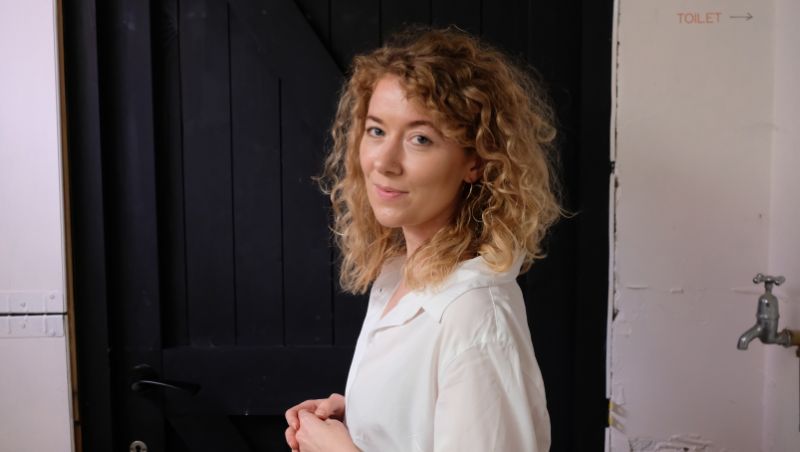Successful poet Dr Holly Pester has discussed her debut novel, The Lodgers, on BBC Radio 4’s Open Book.
Described as “pleasingly weird” by the Times Literary Supplement, I wanted to find out more about the inspiration and challenges behind the book.
She answered my questions.

What was the inspiration for The Lodgers?
“More like a compulsion or agitation than inspiration; to capture the eerie, and often comical, but always somehow political, condition of precarious housing in someone's psyche.
“I've been a lodger and I've been the young child of a single mother who had lodgers and there's something essentially literary about that circumstance. The 'master narrative' of family and home is operating outside of the lodger's, which makes for a slightly unusual angle on the point of view.”
How has your academic research influenced or informed The Lodgers?
“I'm a creative writing academic so my creative practice is my research. I've been working in the lineage of experimental feminist writing, in fiction and poetry and cross-disciplinary forms for a long time.
“To support this novel, I looked specifically at women's fiction, and all sorts of experimental novels, that set up a peculiar housing circumstance, that then inflicted a peculiarity on the character/s's sense of themselves. Whether this was something sharp and farcical like Murial Spark's Girls of Slender Means, or very innovative like Anne Quinn's Three, or even very gothic like Charlotte Bronte's Villette.”
What was the most challenging thing about moving from poetry to prose?
“Every new piece of writing is a challenge in its own way because each piece of writing demands something of the form you've never done before.
“There are aspects of poetic voice in this novel, something like a disturbance on the main protagonist's voice, that could have come from poetic training. But there are things about writing in prose that are much easier and straight forward after working in the intense abstractions of poetry: people going in and out of rooms, as opposed to almost unnameable transient feelings going in and out of focus.
“What was a challenge however was time! Novels need a lot of uninterrupted time, while poetry suits being written in stolen fugitive breaks of time.”
What advice would you give a student interested in creative writing?
“Read passionately, curiously and bravely. Your biggest obstacle will be your own imagination so feed it with things that will open it up.”
The Lodgers has received widespread acclaim, how does that feel?
“A surprise. I am delighted that people are accepting and excited by its unusual form and style.
“People have described it as funny yet unsettling. I am pleased with that, because the idea is about the inability to be settled. A lot of people clearly feel unsettled in themselves and can connect to the themes of precarious housing, to estranged familial and mother-daughter relationships, a lack of agency in generation rent.”
Every debut novelist’s nightmare question, do you have plans for a follow-up?
“It's not a nightmare question! I am always writing and reading, getting excited.
“I am working on a book of poetry about cafes and lost utopias and hope in the west and our sense of public spaces.
“Everyone should be thinking creatively about how to vocalise our discontent and how to change things.”





